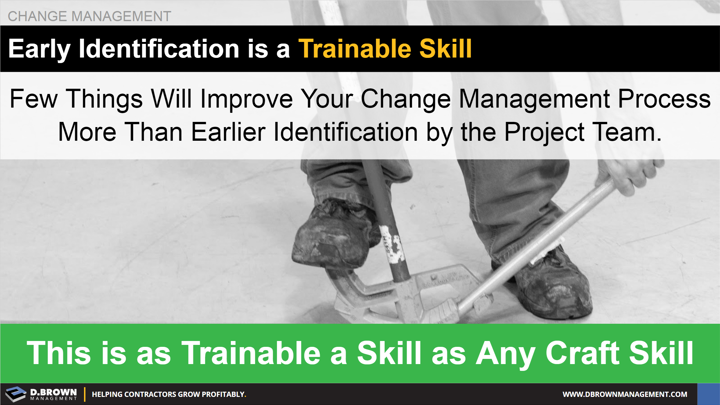Early identification of changes and conflicts is the first key to success.
- Find a set of drawings and specifications that have some obvious and not so obvious conflicts or missing information on them. Develop a test and scoring system out of this. Rank your own team then consider which positions to use this for when hiring.
- Observe the people taking the test and watch for best practices used by the top performers, such as methodically going through the documents, how they mark things, etc. Watch for worst practices by the bottom performers, such as skipping around or not being organized. Use these specific examples for training.
- Develop a set of questions that can be asked to guide people toward finding all the issues. Organize these into checklists and use them to help manage the project.
- Force yourself into deliberate practice on early identification, leveraging best-practices in learning.
“Repetition is the mother of learning, the father of action, which makes it the architect of accomplishment.” ― Zig Ziglar

